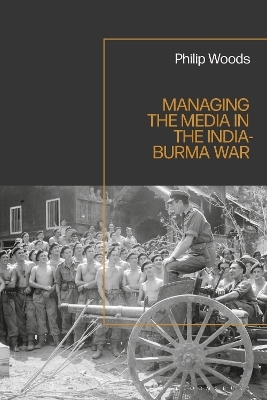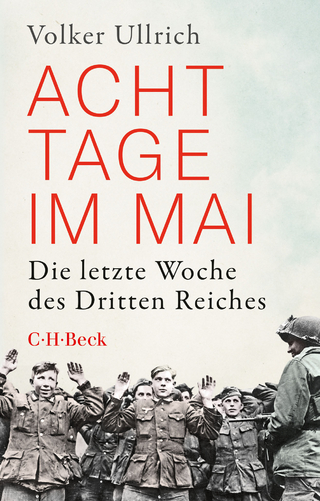
Managing the Media in the India-Burma War, 1941-1945
Bloomsbury Academic (Verlag)
978-1-350-27164-7 (ISBN)
Revealing how troops responded to reports of their operations, Philip Woods demonstrates the role of the media in creating the ‘Forgotten Army’ syndrome, which came about in the last two years of the Burma campaign. Focusing on the British Media, but with examples from the United States and India, including Indian war correspondents, it discusses India’s role in the Second World War in relation to social, economic and political developments at the time. Honing in on India and Burma at a turning point in their road to independence, this book offers a fresh angle on a well-known military conflict, unpicks the various constraints and influences on the media in wartime, and links the campaign to India’s crucial role in WWII.
Philip Woods is Distinguished Research Fellow and part-time lecturer at New York University, London, UK. He has previously taught at University of West London and Kingston University, UK.
Introduction
1. Media Covering the War in India/Burma
2. Managing the Media in the Burma Retreat, 1942
3. The First Arakan Campaign, 1943
4. Media Coverage of Operation Longcloth
5. Mountbatten Takes Charge- Publicity and Censorship
6. Reporting the War, 1944
7. Allies of a Kind: PROs at War
8. Broadcasting: the BBC, All India Radio and Radio SEAC
9. Stepping up Publicity for the 14th Army
10. SEAC Film & Photography
11. Race to Rangoon and Victory, 1945
Conclusion
| Erscheinungsdatum | 24.08.2022 |
|---|---|
| Zusatzinfo | 10 bw illus |
| Verlagsort | London |
| Sprache | englisch |
| Maße | 156 x 234 mm |
| Themenwelt | Geschichte ► Allgemeine Geschichte ► 1918 bis 1945 |
| Geisteswissenschaften ► Geschichte ► Regional- / Ländergeschichte | |
| Geschichte ► Teilgebiete der Geschichte ► Militärgeschichte | |
| Sozialwissenschaften ► Kommunikation / Medien ► Journalistik | |
| ISBN-10 | 1-350-27164-0 / 1350271640 |
| ISBN-13 | 978-1-350-27164-7 / 9781350271647 |
| Zustand | Neuware |
| Haben Sie eine Frage zum Produkt? |
aus dem Bereich


